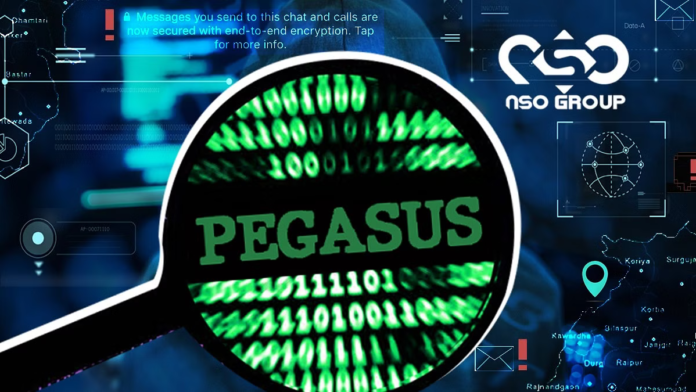by Jakob Staubmann
In the world of cybersecurity, Pegasus spyware has gained notoriety for its ability to infiltrate mobile devices and grant hackers unprecedented access. Developed by the Israeli cyber intelligence company NSO Group Technologies, this malicious software operates like a ghost, silently tracking its targets without leaving a trace.
What makes Pegasus so alarming is its comprehensive surveillance capabilities. Once installed on a device, it can extract a wealth of sensitive information, including passwords, contacts, browsing history, and social media posts. The spyware can also pinpoint the device’s location, track its movements, and even access the camera and microphone to capture pictures or eavesdrop on conversations remotely.
To avoid detection, Pegasus employs clever tactics. It transmits files only when the device is connected to Wi-Fi, preventing any suspicious data charges that could raise alarm. Additionally, it utilizes encryption to store collected data in a discreet software program, ensuring it never exceeds more than 5 percent of the device’s storage capacity.
While Pegasus primarily targets Apple and Android devices, it has been known to exploit vulnerabilities in iPhones. One method of infection involves tricking users into clicking on a link sent via text message, which then delivers the malicious software to their phones. The creators of Pegasus claim to maintain strict control over its use, with the ability to shut it down or monitor the data being collected. However, reports suggest that oversight is lacking, raising concerns about potential misuse.
Interestingly, if an infected phone enters certain countries, such as Israel, Iran, Russia, China, or the United States, Pegasus automatically wipes its software from the device. This self-destruct mechanism further highlights the sophisticated nature of this spyware.
As individuals become increasingly reliant on their mobile devices for personal and professional matters, the threat posed by Pegasus spyware cannot be underestimated. The invasion of privacy it enables is deeply concerning, with potential implications for individuals, businesses, and even national security.
Protecting oneself from Pegasus and similar threats requires a multi-layered approach to cybersecurity. Regularly updating device software, being cautious of suspicious links or messages, and utilizing reputable antivirus software can help mitigate the risk of infection. Additionally, maintaining awareness of the latest cybersecurity threats and staying informed about best practices is crucial in safeguarding personal information.
In conclusion, Pegasus spyware represents a grave invasion of privacy, granting hackers unprecedented access to mobile devices. Its ability to operate covertly and extract sensitive data without detection is deeply unsettling. As technology continues to advance, it is essential for individuals and organizations to remain vigilant and proactive in protecting themselves against such threats.





